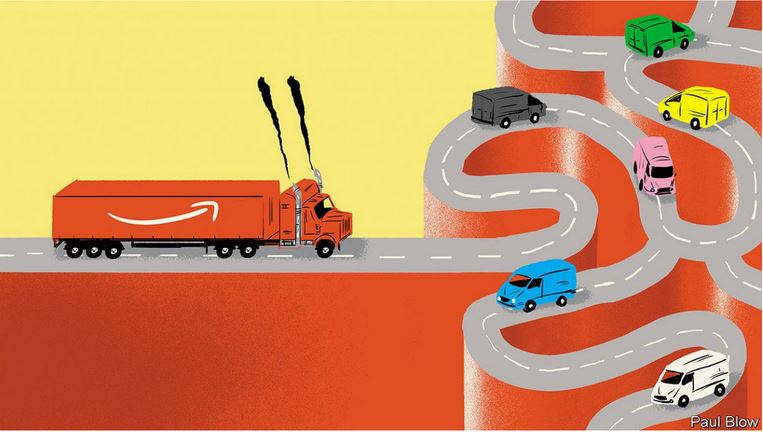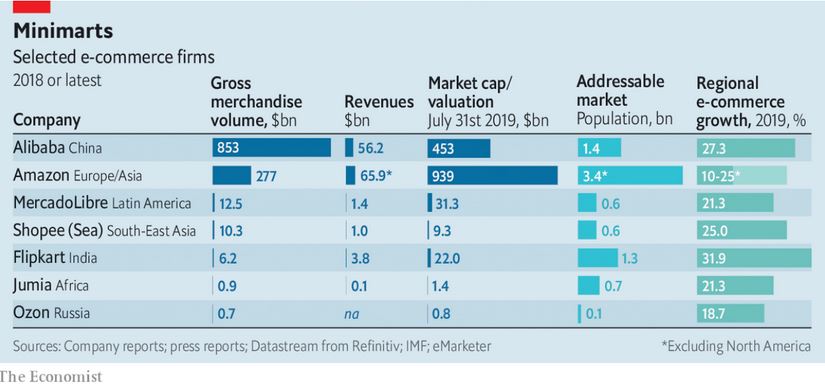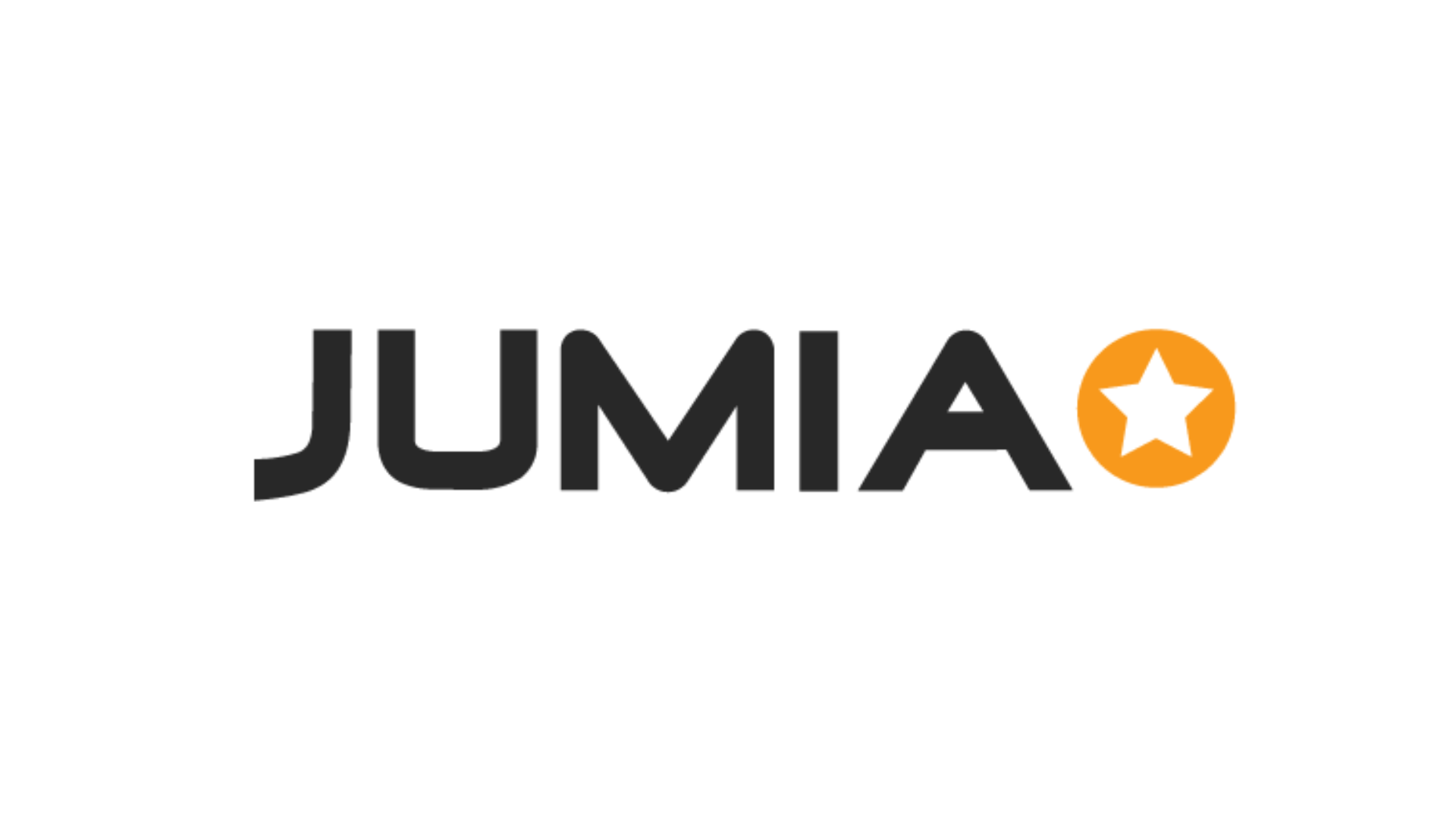News
Baby Amazons take on their American role model
August 2, 2019In the News

(The Economist): Delight Ogualu’s hair is straight, black and gloriously glossy. She made it herself. Mrs Ogualu and her husband run a business selling wigs, which are fashionable in Nigeria. At first buyers came to their small Lagos shop in person. Then they started selling their goods on Jumia, an e- commerce site, to customers across the country. Today about 60% of the Ogualus’ sales are made online.
Around the emerging world, businesses like the Ogualus’ are finding a route to market through the internet. Global e-commerce has been growing for more than a decade. But companies like Jumia are having a moment. Investors are piling in again, spying opportunities to lock in newly connected consumers.
Jumia floated on the New York Stock Exchange in April. MercadoLibre, Latin America’s dominant marketplace from Argentina, which listed in New York 12 years ago, has seen its share price more than double since the start of 2019; PayPal has just invested $750m in the company. Shares in Sea, an online conglomerate which listed in New York in 2017, have tripled in value this year. In March it raised $1.5bn to fund the growth of its e-commerce arm, Shopee. Last year Walmart paid $16bn for control of Flipkart, an Indian firm. Money is pouring into Russian e-commerce, where a “sprint” is on for control of the $18bn market, says Fedor Virin of Data Insight, a research firm. Last year Alibaba, China’s online titan, teamed up with Mail.ru, a Russian internet firm. Sberbank, a big Russian state-controlled lender, launched an e-commerce joint-venture with Yandex, another local company. Both are chasing Ozon, Russia’s biggest generalist online
retailer.
Such companies—call them baby Amazons—are following the path charted by America’s e-commerce colossus. They have a way to go. After stripping out Amazon’s mature North American business, some $277bn of goods changed hands on its platform last year, compared with
perhaps $30bn for the biggest emerging-world firms (see table). At around $65bn, their combined value is dwarfed by Amazon’s $949bn (though its cloud-computing arm, aws, may account for half of that). And their revenues, some $6bn all told, are a tenth of the American firm’s.

But whereas Amazon’s international e-commerce sales grew by a comparatively measly 12% year on year in the second quarter, the upstarts’ sales are rising by high double digits or more, as the emerging world embraces the virtual one. MercadoLibre’s swelled by 94% in its most
recent quarter. Shopee’s ballooned by 342%. Small wonder investors are giddy.
Although all these firms no doubt want to be like the American paragon when they grow up, they are going about it differently than it did. Where Amazon’s growth piggybacked on the US Postal Service and credit-card networks, they had to build their own, or do without. This limited their early growth. With better infrastructure now in place, and potential customers flocking online, they eye a new era. “The opportunity in the next 20 years is much bigger than the last 20 years,” enthuses Sean Summers, MercadoLibre’s chief marketing officer.
The companies share four characteristics. First, they were born adapted to tricky local markets. Walmart pulled out of Brazil in 2018, when it became clear that, partly as a function of Brazil’s long-standing protectionism, the giant American retailer could not easily access global supply chains it relies on to offer low prices in other places. Red tape related to tax, shipping and
payments proved too much hassle for foreign behemoths to bother with, says Mr Summers. In their absence, the local companies can thrive.
Build it and they will buy
Before that could happen, though, they often had to build their own infrastructure in places where payment and delivery systems are rudimentary or non-existent. This is the second shared feature.
Many of Jumia’s customers do not have an address, so delivery men phone ahead for directions. The company works with over 100 logistics providers and, in cities like Lagos, runs its own last-mile fleet of motorbikes and lorries. In Indonesia, a booming market of 265m people dispersed across 15,000 islands with few decent roads or, as in Nigeria, precise addresses, Shopee and its regional rivals, Tokopedia and Lazeda, enlist local shopkeepers who know the area to direct deliveries to the right recipients.
Jumia, Souq (an Emirati firm bought by Amazon in 2017) and MercadoLibre have all built their own sophisticated payment networks. MercadoLibre’s has turned into a fully fledged money-management system, complete with payments to friends, investment options and small loans.
The third similarity is that the emerging e-merchants tend not to hold and sell merchandise themselves. Some 40% of Amazon’s sales come from products it stocks rather than from third parties. In the case of MercadoLibre and Shopee that number is close to zero. The need to build and maintain payment and delivery systems leaves little energy—or resources—to run a shop. Regulators in developing countries have also been tougher on anticompetitive behaviour than their counterparts in America and Europe. India’s competition authority recently ordered Flipkart to stop selling wares in its marketplace, where it could undercut third-party sellers.
The mini e-marts are different from Amazon in one last crucial way—they do not make much money at the moment. Many are burning through cash. Jumia lost €170m ($188m) last year and has lost a cumulative €862m since being founded in 2012. Shopee does not yet make a profit, though analysts expect that it will do so before 2023. Last year MercadoLibre made no money for the first time since it broke even in 2006. Mr Summers says the firm is now investing everything it can in growth.
Investors will need patience—and deep pockets. Eghosa Omoigui of Echovc Partners, a venture capital fund in Lagos, is convinced that e-commerce will one day succeed in Africa. In the meantime, “you have to keep shoving coal into the engine.” In Russia, Mr. Virin predicts, the race will also come down to fuel. “The winner will be the one who doesn’t run out of money.”
For the time being, there appears to be no risk of that. Shopee’s parent raised $884m when it listed in New York two years ago. Besides reinvesting profits, MercadoLibre raised $2bn in March, partly by offering shares on the secondary market, and in part by selling a stake to Paypal. Tokopedia picked up $1.1bn from SoftBank, a Japanese tech holding company, in December. Jumia has about €380m in cash, enough for about two years at the rate the firm is currently burning through it.
The companies are hoping that their markets will expand fast enough to generate profits before the capital taps run dry. There is room to grow. Fewer than 1% of retail sales in Jumia’s markets currently take place online. By 2025 that figure may reach 10% in Africa’s biggest economies, consultants at McKinsey reckon. The consumer class is growing fast, says Jeremy Hodara, one of Jumia’s co-founders. “They come to us and say, ‘Look, it’s the Africa Cup of Nations [football tournament] and my country’s qualified. I need my first tv.’”
Shopee’s revenues are rising even as it spends less on marketing and promotions. Last year it had 50m active buyers, up from 21.7m the year before. In 2017 Google and Temasek, a Singaporean sovereign-wealth fund, predicted that the south-east Asian internet economy will be worth $200bn by 2025. Last year they revised their forecast up by a fifth, to $240bn. Marcel Motta of Euromonitor International expects e-commerce’s share of total retail in Brazil to double to 10% by 2023. In Russia annual online sales of physical goods could reach €50bn by then, from €22bn in 2019.
The e-commerce hopefuls see a route to riches by closing the gap between online retail’s penetration in their markets and that enjoyed by Amazon in America, which remains three times larger. The sale of goods is not their only path to profits. Some will sell themselves to the giants, as Souq and Flipkart have done. Others will continue on their own. MercadoLibre wants to be something close to a fully-fledged digital bank. All show that having built their own infrastructure, they can sell access to it. In this respect, at least, they may give their American role model a run for its money.
About Jumia
Jumia is a leading e-commerce platform in Africa. Our marketplace is supported by our proprietary logistics business, Jumia Logistics, and our digital payment and fintech platform, JumiaPay. Jumia Logistics enables the seamless delivery of millions of packages while JumiaPay facilitates online payments and the distribution of a broad range of digital and financial services.
Follow us on, Linkedin Jumia Group and X @Jumia_Group
For more information about Jumia:
Abdesslam Benzitouni
[email protected]


